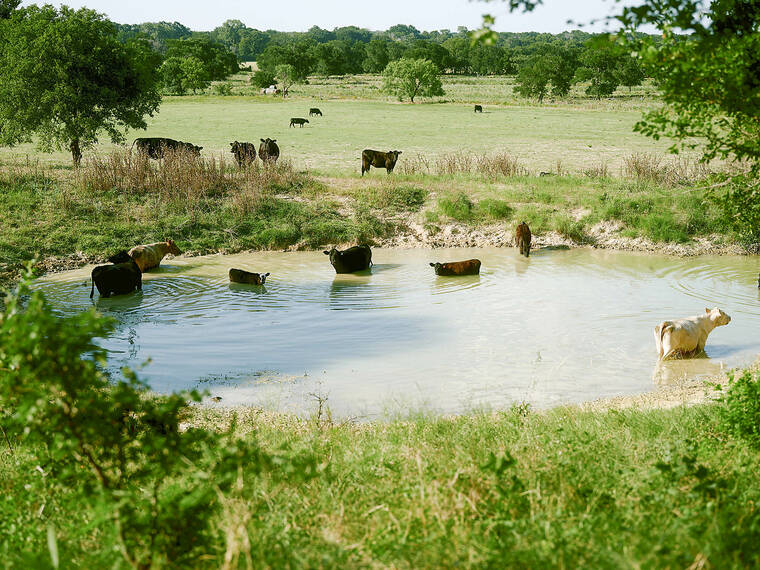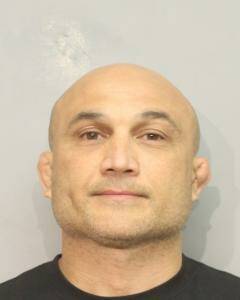Their fertilizer poisons farmland. Now, they want protection from lawsuits.
For decades, a little-known company now owned by a Goldman Sachs fund has been making millions of dollars from the unlikely dregs of American life: sewage sludge.
The company, Synagro, sells farmers treated sludge from factories and homes to use as fertilizer. But that fertilizer, also known as biosolids, can contain harmful “forever chemicals” known as PFAS linked to serious health problems including cancer and birth defects.
ADVERTISING
Farmers are starting to find the chemicals contaminating their land, water, crops and livestock. Just this year, two common types of PFAS were declared hazardous substances by the Environmental Protection Agency under the Superfund law.
Now, Synagro is part of a major effort to lobby Congress to limit the ability of farmers and others to sue to clean up fields polluted by the sludge fertilizer, according to lobbying records and interviews with people familiar with the strategy. The chair of one of the lobbying groups is Synagro’s CEO.
In a letter to the Senate Committee on Environment and Public Works in March, sludge-industry lobbyists argued that they shouldn’t be held liable because the chemicals were already in the sludge before they received it and made it into fertilizer.
The lobbying has found early success. A bill introduced by Sens. John Boozman of Arkansas and Cynthia Lummis of Wyoming, both Republicans, would protect sludge companies like Synagro, as well as the wastewater plants that provide the sludge, from lawsuits. A House bill has also been introduced.
Lummis will “work with President Trump’s EPA to ensure ‘passive receivers,’ like water utilities and others, are protected from bogus third-party lawsuits,” her office said in a statement.
Synagro and Goldman Sachs declined to answer detailed questions. Synagro in its most recent sustainability report acknowledged the risks of PFAS contamination in its fertilizer, calling it “one of our industry’s challenges.”
Widespread manufacturing of PFAS began decades ago, with some of the country’s largest chemical companies making vast quantities and downplaying the risks. Water-resistant and virtually indestructible, the chemicals have been used in everything from nonstick pans and dental floss to firefighting gear and waterproof clothing.
Even as PFAS has turned up in wastewater, the government has continued to promote the use of sewage sludge as fertilizer. And while Donald Trump’s election raises the prospect that PFAS restrictions might be rolled back, alongside other environmental rules, Synagro is pressing ahead in the effort to protect itself from expensive lawsuits.
The company is already facing all manner of legal challenges. This year a group of ranchers in Johnson County, Texas, stopped sending their cattle to market and sued Synagro for damages after a neighboring farm used sludge fertilizer on its fields. County investigators found 32 types of PFAS in the ranchers’ soil and water. Synagro has contested those allegations.
Residents of San Bernardino County, California, have also sued the company, over exposure to PFAS and other pollutants when an open-air pit of biosolids caught fire at a Synagro subsidiary. In October, a cattle farmer in Randolph County, Missouri, filed an intent to sue Synagro and another biosolids company, saying the companies had acknowledged that PFAS chemicals may be present in the sludge but continued to provide it to farmers.
“I think it’s terrible,” said Donald Craig, the Missouri farmer, who alongside two local environmental groups is demanding that Synagro cease supplying sludge fertilizer in the state. He and the coalition have also petitioned the state to ban the use of the fertilizer altogether. “It’s disgusting. It needs to be outlawed.”
The current lawsuits against Synagro don’t make claims under America’s Superfund law, which requires corporations to clean up toxic contamination. But that landmark law is likely to be central to future cases, because of the EPA’s decision this year to designate two major kinds of PFAS as hazardous substances under the law. The industry’s lobbying seeks to inoculate Synagro and others from lawsuits, even over decades-old contamination.
“What the biosolids companies are doing is attempting to buy themselves a ‘get out of jail free’ card,” said Mary Whittle, an attorney with Guerrero &Whittle who is representing the Texas ranchers. All this protects a business model that “makes Synagro rich while destroying America’s farmland,” she said.
How PFAS ended up on farmland
The federal government has long encouraged the use of sludge as fertilizer in part because it would otherwise need to be disposed of another way — dumped in landfills, or burned — potentially releasing greenhouse gases and other pollution. In addition, sludge contains nutrients that encourage plant growth, and helps reduce use of fertilizers made from fossil fuels.
But a growing body of research shows that, unbeknown to farmers, fertilizer made from the sewage that flows from homes and factories can contain heavy concentrations of PFAS, which can then contaminate farmland.
It’s difficult to know how much fertilizer sludge is used nationwide, and EPA data is incomplete. The industry says that more than 2 million dry tons were used on 4.6 million acres of farmland in 2018. And it estimates that farmers have obtained permits to use sewage sludge on nearly 70 million acres, or about a fifth of all U.S. agricultural land.
Only one state, Maine, has begun systematically testing agricultural land for PFAS. So far, it has found 68 farms with significant contamination. In 2022, the state banned the use of sludge fertilizer and has since set up a fund to support affected farms.
Lawmakers in Washington are only starting to take notice. The Senate version of a stalled farm bill would have created a $500 million fund to be used to clean up farms, buy out farmers, monitor health, and fund testing for PFAS, essentially shifting the costs onto taxpayers. The fate of the measures, modeled on Maine’s approach, remained unclear.
“It could be that ultimately millions of acres of farmland is contaminated with biosolids, and may no longer be suitable for agriculture unless they are cleaned up,” said Scott Faber, an attorney with the Environmental Working Group and adjunct professor of law at Georgetown University. But there’s another possibility, he said: “They may simply be too expensive to clean up.”
Smelly but profitable
Sewage sludge is a lucrative business.
When local water utilities treat sewage, and filter out the water, it leaves behind a thick sludge. Companies like Synagro take the sludge from more than 1,000 wastewater facilities in North America, which is then sold as inexpensive fertilizer.
While Synagro does not publicly report financial results, its earnings hit $100 million to $120 million last year, analysts estimated. An investment fund run by Goldman Sachs, West Street Infrastructure Partners III, acquired Synagro in 2020 in a deal reported to be worth at least $600 million.
As concerns over PFAS risks have grown, Synagro has stepped up its lobbying.
In 2022, the company set up a nonprofit, the Coalition of Recyclers of Residual Organics by Practitioners of Sustainability at Synagro’s corporate headquarters, and installed the company’s CEO, Bob Preston, as chair, according to the group’s tax filings. Since its founding, the group has spent $220,000 on federal lobbying, disclosure forms show.
In a statement, the nonprofit said the bills it lobbied for would “ensure liability resides with the manufacturer of these chemicals.”
Trump’s return to office introduces a new complication: The EPA’s designation of some PFAS as hazardous under the Superfund law could be rolled back. Project 2025 calls for removing the hazardous-substance designation, and a major industry group has challenged the EPA’s move in court.
Ryan McManus, government-affairs manager at the American Public Works Association, which represents water utilities and wastewater-treatment plants nationwide, and which has been a key player in the effort to lobby Congress, said his group remained “very focused on a legislative solution because ultimately you could have another administration four years from now that decides to reverse course.”
This article originally appeared in The New York Times.
© 2024 The New York Times Company





